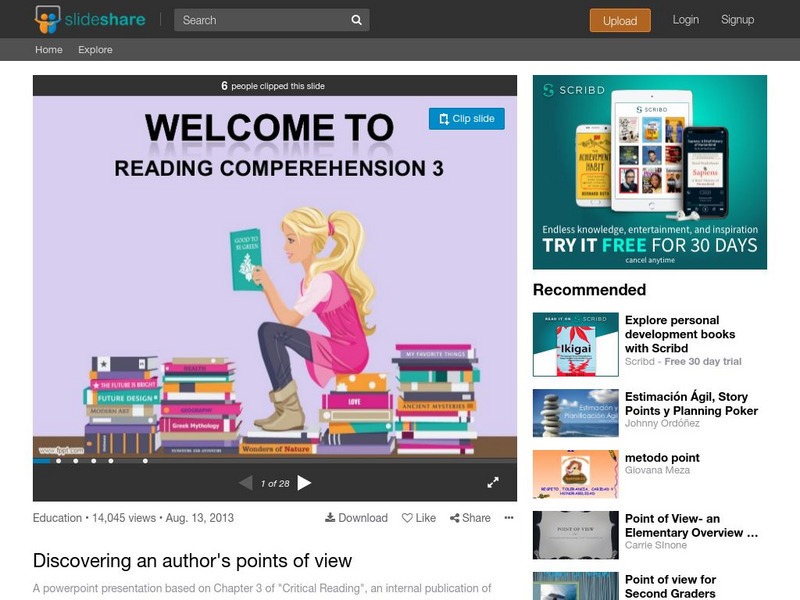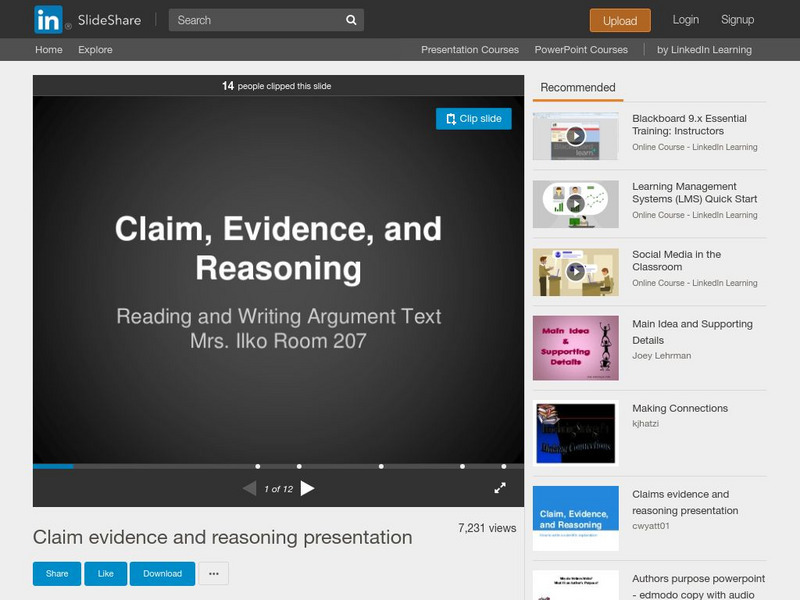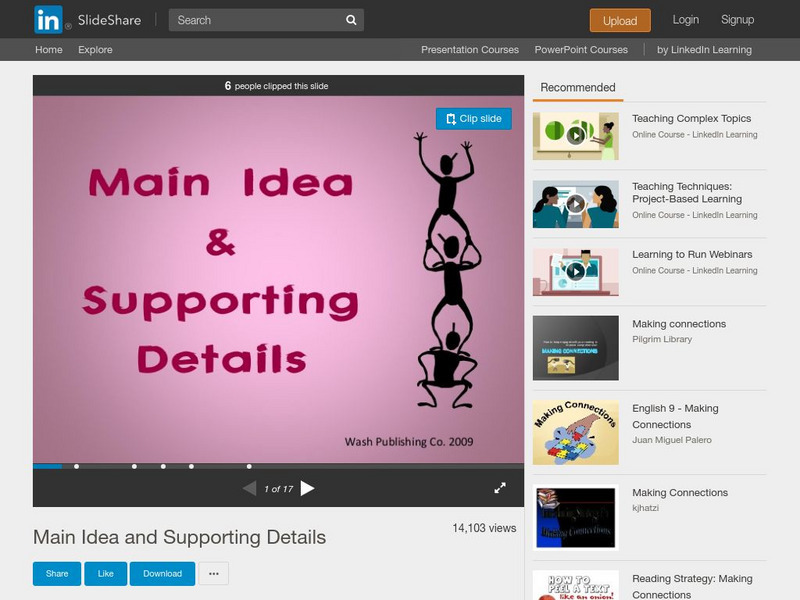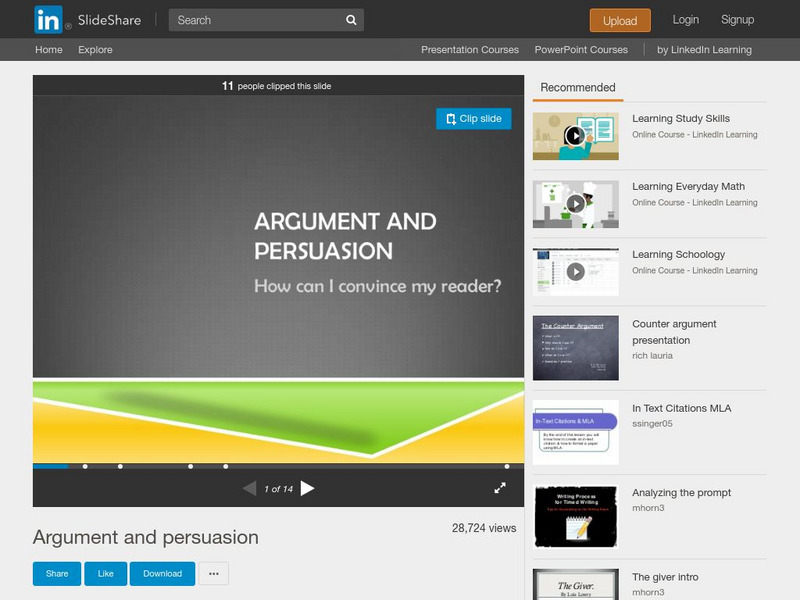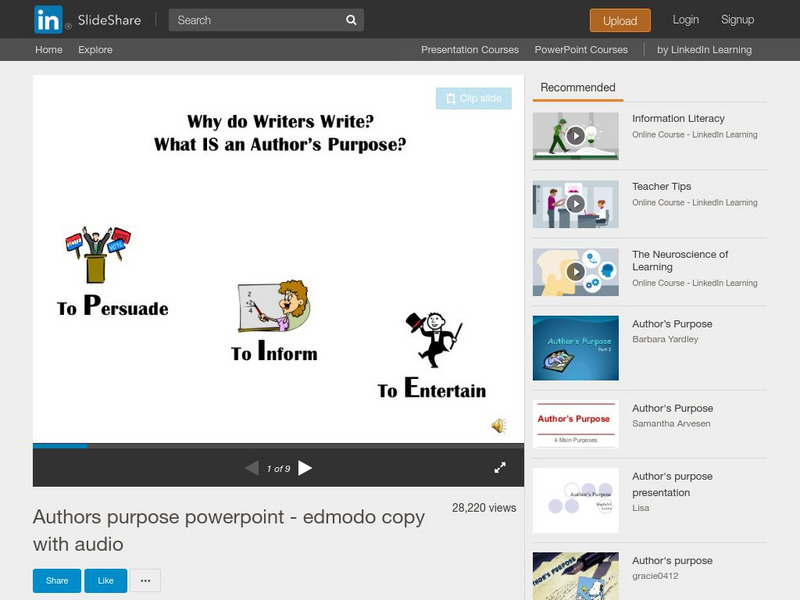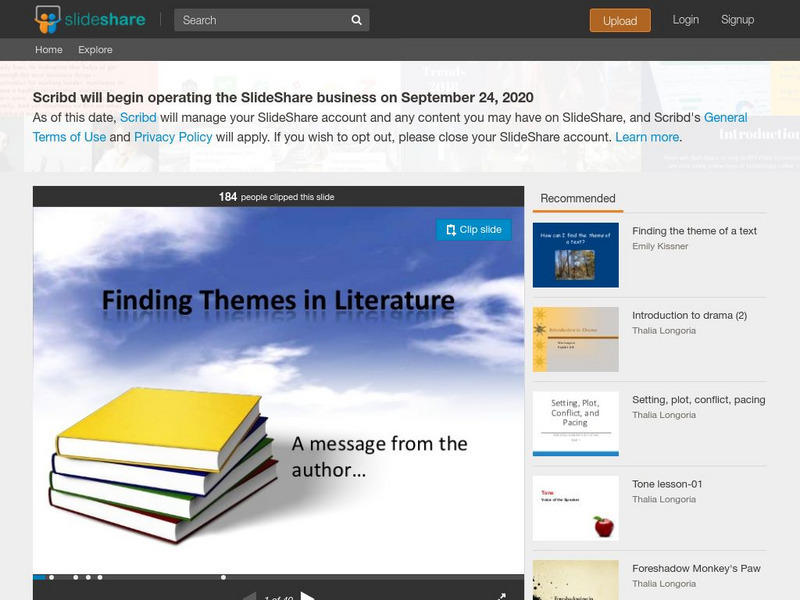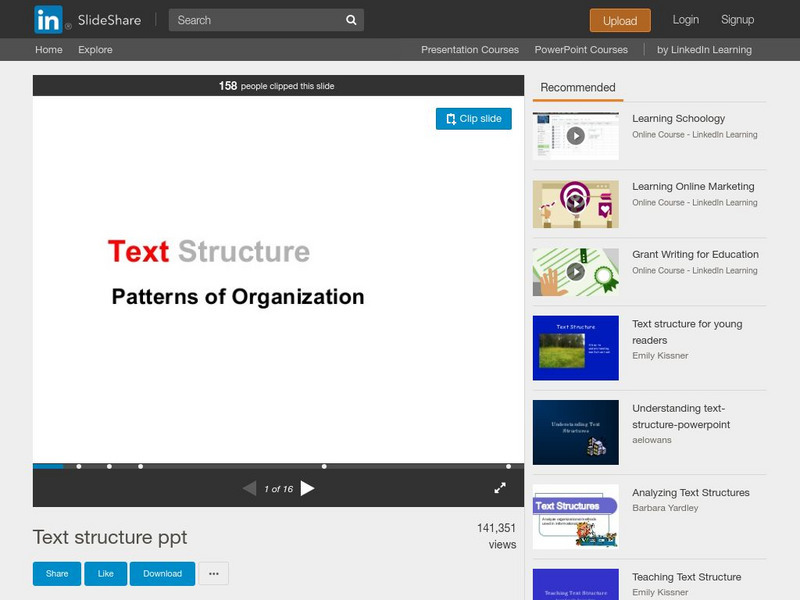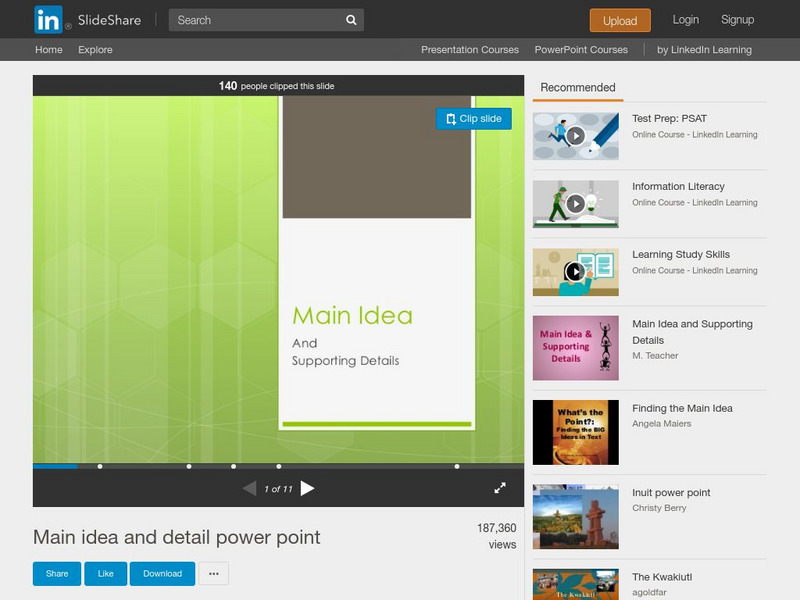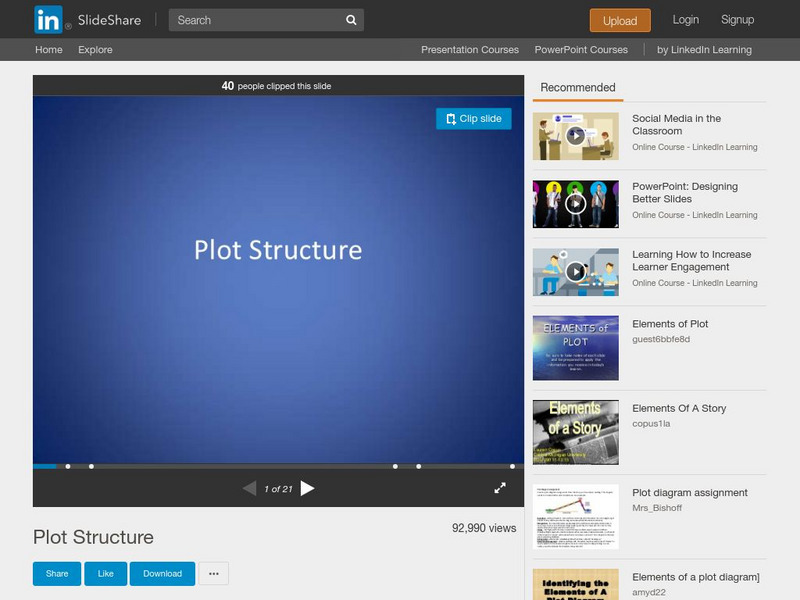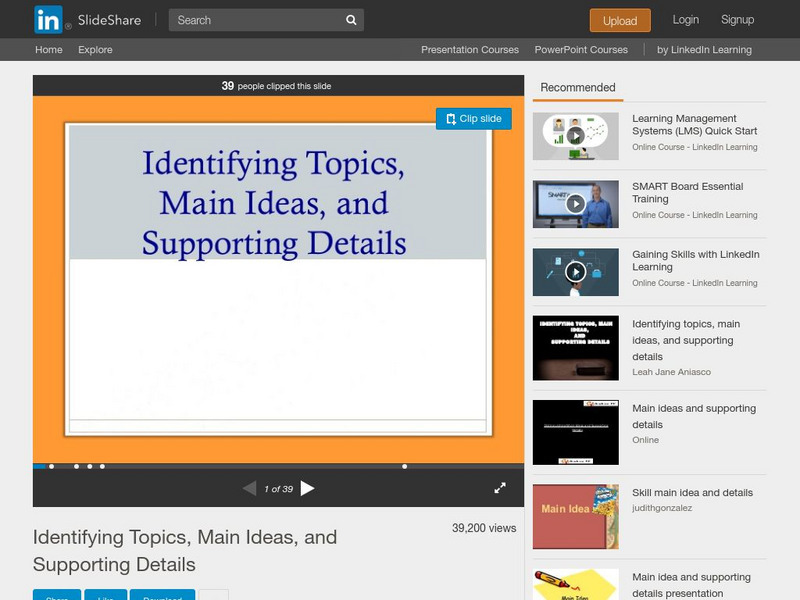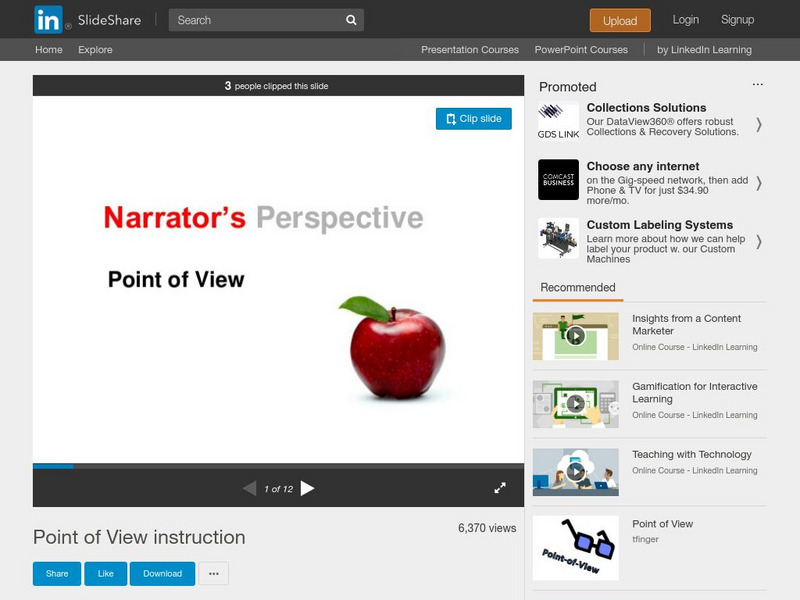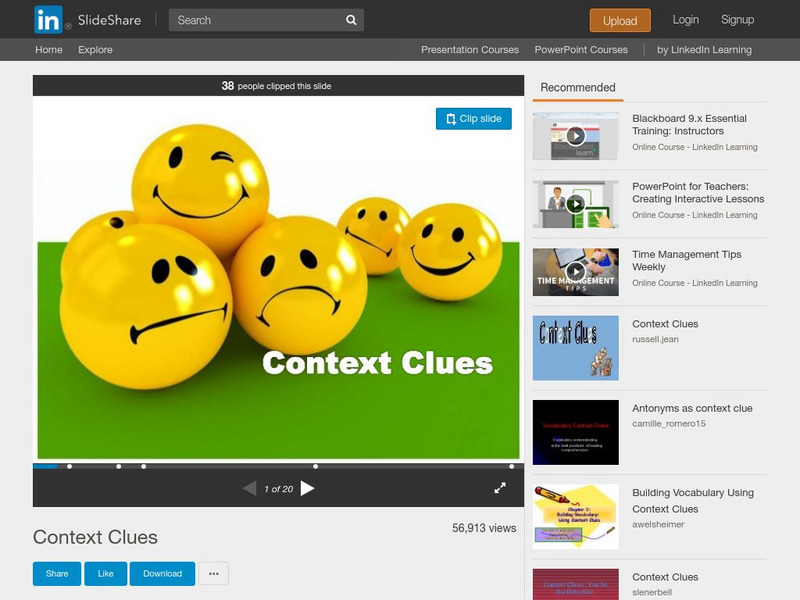Tom Richey
Slideshare: Introduction to the Elements of Fiction
A slide show with twenty-two slides about story elements. Includes definitions, information, and examples of character terms, setting terms, plot terms, conflict terms, and more
Tom Richey
Slide Share: Discovering an Author's Point of View
A slide show with twenty-eight slides with information on how to determine an author's purpose to entertain, to inform, or to persuade his/her audience.
Tom Richey
Slide Share: Claim Evidence and Reasoning
A slideshow with twelve slides about reading or writing an argument, analyzing the claim and looking at how it is supported with observation, evidence, and reasoning.
Tom Richey
Slide Share: Main Idea and Supporting Details
A slide show with seventeen slides teaching about main ideas and supporting details within a text.
Tom Richey
Slide Share: Making Connections
A slide show with thirty-two slides explaining how to use text to self, text to text, and text to world connections to improve reading comprehension.
Tom Richey
Slide Share: Argument and Persuasion
A slide show with fourteen slides with notes, tips, and examples on how to write a persuasive essay.
Tom Richey
Slide Share: Why Do Writers Write?
A slide show with nine slides explaining the author's purpose to persuade, inform, or entertain.
Tom Richey
Slide Share: Main Idea & Supporting Detail
Ten slides explaining how to identify main ideas and details within a text.
Tom Richey
Slide Share: Finding Themes in Literature
A slide show with forty slides with explanations, examples, and information on how to determine the theme of a text. RL.9-10.2 and RL.11-12.2 Analyzing Theme.
Tom Richey
Slide Share: Text Structure Ppt
A slide show with sixteen slides with explanations and examples of different text structures including: cause and effect, compare and contrast, problem and solution, sequential, and description.
Tom Richey
Slide Share: 3rd Grade Summarizing and Paraphrasing
A slide show with eight slides with explanations and examples of paraphrasing and summarizing a text.
Tom Richey
Slide Share: Main Idea and Detail Power Point
A slide show with eleven slides with information and examples on finding the main idea and supporting details in an informational text.
Tom Richey
Slide Share: Explicit and Implicit Questions
A slide show with six slides on asking and answering implicit and explicit questions within a text.
Tom Richey
Slide Share: Understanding Context Clues
A slide show with forty-two slides with explanations and examples on how to use context clued to determine the meanings of unknown words.
Tom Richey
Slide Share: Elements of Plot
A slide show with ten slides about the parts of a plot development: exposition, conflict, rising action, climax, falling action, and resolution.
Tom Richey
Slide Share: Skill Main Idea and Details
A slide show with fourteen slides with information and examples on finding the main ideas and supporting details in an informational text.
Tom Richey
Slide Share: Plot Structure
A slide show with twenty-one slides explaining elements of plot including: characters, setting, exposition, conflict, rising action, climax, falling action and resolution.
Tom Richey
Slide Share: Identifying Topics, Main Ideas, and Supporting Details
A slide show with thirty-nine slides explaining and giving examples of topics, main ideas and supporting details within an informational text.
Tom Richey
Slide Share Author's Purpose
A slide show with five slides with examples of three different types of author's purpose: to entertain, to inform, and to persuade.
Tom Richey
Slide Share: Point of View Instruction
A slide show with twelve slides explaining and giving examples of first, second, and third person point of view.
Tom Richey
Slide Share:inference
A slide show with eighteen slides defining, explaining, and giving examples of making inferences.
Tom Richey
Slide Share Compare and Contrast
A slide show with ten slides designed to build skills in comparing, contrasting, and using Venn diagrams.
Tom Richey
Slide Share: Fact and Opinion
A slide show with sixteen slides with definitions, examples, and practice activities to use while learning about the difference between fact and opinion.
Tom Richey
Slide Share: Context Clues
This downloadable slideshow focuses on context clues including definitions, the four types, and examples.



